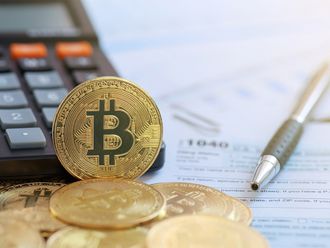In an unprecedented move, the six-nation Gulf Cooperation Council (GCC) collectively initiated economic measures to put pressure on the Syrian regime for its violent crackdown on protesters demanding comprehensive political reforms.
GCC countries are well placed to wield the stick given the deteriorating situation in Syria thanks to massive public and private investments. Running into billions of dollars, GCC investments are significant compared to the relatively small Syrian economy.
Syria's gross domestic product (GDP) amounted to $107 billion (Dh392.93 billion) on the basis of purchasing power parity but merely $65 billion in nominal terms last year. Yet, the GDP of Saudi Arabia stood at $577 billion in nominal terms in the same year.
GCC investments are not restricted to tourism projects such as hotels and property and also include industrial and financial services businesses. The UAE leads fellow GCC countries in the value of investment commitments in Syria. For instance, Emaar Properties is behind the Eight Gate project in Syria, the first master-planned mixed-use community with residential, commercial and retail units.
Notable players
The Kharafi Group of Kuwait is a notable player in Syria's leisure industry, owning Sheraton Aleppo among other properties. The same group has invested heavily, as much as $100 million, in setting up a cement company in Syria.
The Four Seasons Damascus, the city's leading luxury hotel, is owned by Saudi billionaire Prince Al Waleed Bin Talal. Also, Saudi companies have invested in the development of Syria's financial services sector.
For their part, Qataris have been the primary GCC investor in Syria's financial services sector. Only in 2010 did Qatar National Bank-Syria raise its capital to $300 million. Not surprisingly, Qatar stands to bear the biggest losses of all GCC states as a result of the US and EU restrictions on transactions with the Central Bank of Syria as well as transfers of funds into and from Syria.
American and European restrictions aside, GCC countries took the lead in pressing the Arab League to impose commercial sanctions on Syria. This also put on hold further investments in unfinished projects in Syria.
Reforms
To a good extent, the Syrian economic reforms programme rested on attracting investments from GCC countries. Measures adopted over the last few years included doing away with customs duties on imported goods used in developing projects in the country, such as construction of hotels and residential units.
GCC investments in Syria are without a doubt in the worst possible state. This is compounded by a drop in the number of visitors, adversely affecting the viability of the vital tourism sector.
Against this backdrop, numerous GCC carriers led by Saudi Arabian Airlines opted to suspend flights to Syria. And last week, Saudi Arabia emerged as the first GCC country to close down its embassy in Damascus, a move that could entice other regional countries to follow suit.
Currency spiral
Another adverse factor relates to a drop in the value of the Syrian currency and hence returns on investment. The currency's value has dropped from 47 pounds to the US dollar at the start of the uprising in March last year to 58 pounds to the greenback early this year. The currency recently traded as low as 70 pounds to the dollar in the black market.
Clearly, a great many GCC investments in Syria are hampered by frozen funds whilst alternative use of the funds is denied. However, the extraordinary development is bound to open debate in chambers of commerce and other pertinent circles concerning implications for private investments in relation to choices made by public sector authorities.
The writer is a Member of Parliament in Bahrain.












